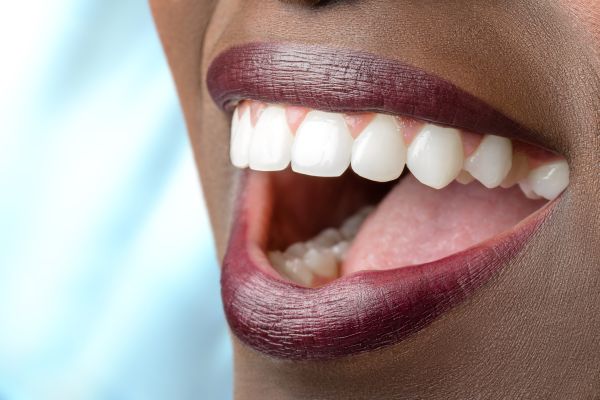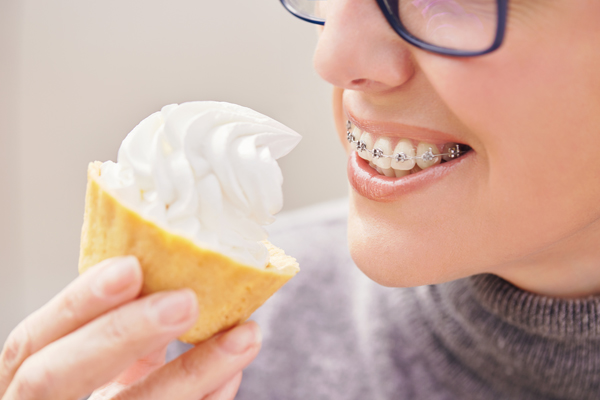How to Minimize Sensitivity After Teeth Whitening

You might find yourself dealing with tooth sensitivity regardless of the type of teeth whitening treatments you decide to go with. Over-the-counter whiteners are the biggest offenders since many of these products contain abrasive ingredients that can damage teeth enamel. Professional teeth whitening treatments are usually gentler on your teeth since these treatments are supervised by an oral professional who understands the inner workings of teeth.
Reducing sensitivity after teeth whitening
Teeth whitening treatments work thanks to the bleaching agents in them, like hydrogen peroxide and hydrogen carbamide. The molecules of these chemicals penetrate the enamel, dentin and often make their way to the pulp. This leads to increased teeth sensitivity for some people.
The best way to keep teeth sensitivity at bay after whitening teeth is by addressing the issue before treatment, especially if tooth sensitivity is something the patient deals with often. Here are some simple things patients can do to ward off tooth sensitivity:
1. Rinse with solutions made for sensitive teeth
There are desensitizing solutions and toothpaste that can counter tooth sensitivity. These products have more fluoride than regular mouthrinses and toothpaste, which helps to combat sensitivity. Patients who know they are prone to teeth sensitivity should start using these products for up to two weeks before their appointment. Those with severe tooth sensitivity should talk to a dentist about prescription desensitizing products that work even better.
Dentists can minimize sensitivity during whitening treatments by adding potassium nitrate to the whitening tray if conventional whitening treatments are being performed.
2. Use anti-inflammatory agents
There are a variety of anti-inflammation products that can reduce teeth sensitivity caused by whitening procedures. Over-the-counter products, like Motrin® and Advil®, can be effective.
3. Avoid cold foods and beverages
Foods that are extra cold, like ice cream, popsicles and slushies, can aggravate teeth that are already sensitive. Patients should avoid these leading up to and after their treatments.
4. Brush before whitening teeth
Brushing teeth after whitening treatments can end up opening more pores in the dentin, which will increase tooth sensitivity. Doing so can also damage teeth enamel since some whitening products are very acidic. It softens teeth enamel enough that brushing (even with a soft toothbrush) can damage it. Hold off brushing for at least a few hours after teeth whitening.
5. Space out your treatments
People with sensitive teeth should cut down on how often they use whitening products. Whitening products aggravate teeth and dental pulp, so overdoing it can lead to sensitivity or make it worse. A dentist will evaluate the patient's teeth and come up with a treatment schedule that reduces the risk of sensitivity.
We can help with teeth sensitivity
Call or visit our Houston clinic if you are interested in teeth whitening treatments but you're worried about teeth sensitivity. Our dentist will evaluate the condition of your teeth, prescribe desensitizing products that can help and get your teeth to a shade of white that blends in with your facial features.
Request an appointment here: https://www.lastingimpressionsdentalgroup.com or call Lasting Impressions Dental Group at (832) 784-8212 for an appointment in our Houston office.
Check out what others are saying about our services on Yelp: Read our Yelp reviews.
Recent Posts
Orthodontics requires patience on the part of the wearer. They work their magic at a slow, steady pace, realigning the teeth and jaw to create the patient's desired smile. Once the braces come off or the patient completes their clear aligner treatment, a retainer becomes a new addition to a patient's daily routine. Here is…
When it comes to oral health care for children and teenagers, choosing a kid friendly dentist is a great idea. Although other dentists can cater to children and adults alike, a kid friendly dentist usually has specialized training and tools to handle children, as well as an office environment designed to put kids at ease.…
Fastbraces® are the quickest way to improve the alignment of crooked teeth. These devices often negate the need for extractions and they can safely straighten teeth in as little as three months. This article will explore how fastbraces® work and some of the important things to know when thinking about going this route.Fastbraces® share some…
Sedation dentistry is a common option for various levels of dental treatment in today's age. It can help with something as simple as teeth cleaning to something more serious, like a tooth extraction. Regardless for the reason, people are curious about sedation dentistry and have several questions.1. Sedation dentistry can ease anxietySedation dentistry is the…


